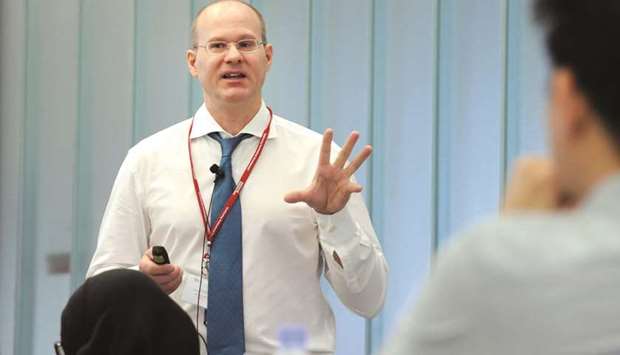Weill Cornell Medicine-Qatar (WCM-Q), a Qatar Foundation (QF) partner university, is pioneering an innovative curriculum that aims to prepare upcoming cohorts of undergraduate students for the digital era, combining liberal arts and medicine.
The university will host next month the first International Conference on Medical Humanities in the Middle East – the first of its kind in the region.
WCM-Q’s initiatives reflect the wider commitment of QF to providing holistic training aligned with the latest advances in specific sectors, including healthcare.
Dr Alan Weber, a professor at WCM-Q who teaches English at the university, said, “Medical schools are waking up to the fact that students who have studied liberal art subjects along with their core science modules have highly developed thinking skills and creativity; they can put things into perspective, and think outside the box.”
WCM-Q’s medical course requires students to take two writing intensive humanities courses, ranging from literature and history to philosophy and sociology, to learn humanistic ways of thinking that include critical and analytical skills, creativity, and problem-solving.
Faculty at WCM-Q are drawn from different disciplines – experts in literature, filmmaking, languages, history, and philosophy rub shoulders with those teaching traditional medical school subjects of biological sciences and technology. Many of them also conduct research, lecture internationally, and lead workshops on the medical humanities.
At a meeting organised by the Association of Academic Health Centres International (AAHCI) in Beirut last month, Dr Weber presented WCM-Q’s innovative methods that explore ways to enhance medical education through the study of humanities.
The conference focused on the urgency to prepare medical students for a future where disruptive technologies might affect the role of doctors, and their relationships with their patients, by including liberal arts in their curriculum. These traits, which future medical students can develop by studying liberal arts alongside core science modules, will in turn complement their clinical knowledge.
Eman al-Musleh, a former student at WCM-Q, a member of a group of students who in a 2016 experiment conducted jointly by WCM-Q and Virginia Commonwealth University School of the Arts in Qatar (VCUarts Qatar) used art as a means of interpreting medicine.
Along with Abdul Rahman, a VCUarts Qatar student, al-Musleh created a 3-D paper sculpture that represented an MRI image of the human skull and brain. Later, when she went on to apply for residency programmes in the US, that single art project was what made her application stand out amongst the other applications.
“Every single interviewer on the selection board at the universities I applied to, seemed fascinated by – and delighted with – the artwork I had produced during my studies at WCM-Q,” she said. “In fact, the director of the paediatric residency programme I am enrolled in now, even approached me for help in developing art therapy courses for medical intern
wellness.”

Dr Alan Weber
